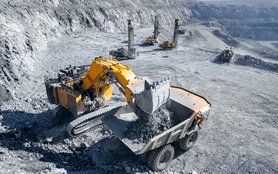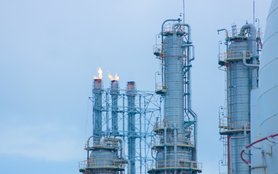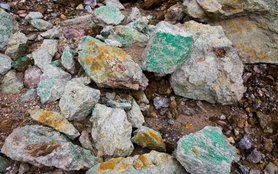The Human Rights Defenders Protection Act will strengthen the U.S. government’s support for at-risk activists around the world.
Human rights defenders are under fire. At a time when the climate crisis is deepening and threats to democracy are on the rise, activists working to protect people and the environment are facing deadly threats. They are defending environmental, land, and Indigenous peoples’ rights; freedom of expression and assembly; women’s rights; and access to justice—and they live in fear.
“They are scaring me 24/7. I can’t sleep,” says South African human rights defender Nonhle Mbuthuma. Activists she’s worked with have met untimely deaths. “They died in different ways. Some have been poisoned, some have been assassinated.”
Mbuthuma is featured in a new film from Oxfam--Hold the Line—that documents the struggles and successes of activists around the world who are standing up for human and environmental rights.
THE TRENDS ARE WORRYING
It’s been 25 years since passage of the UN Declaration on Human Rights Defenders (HRDs), but activists continue to experience violence, torture, arbitrary detention, surveillance, harassment, and threats to their families and friends—and assassinations. Front Line Defenders documented more than 400 murders of HRDs in 2022—the highest number ever recorded.
For women, there’s more. “The particular experiences that we live as women human rights defenders,” says Magaly Belalcazár Ortega of Caquetá, Colombia, “is on many occasions to be victims of sexual violence.”
Attacks on HRDs reflect broader threats to fundamental freedoms and are emblematic of shrinking civic space in many countries and regions where Oxfam operates. Authoritarians who intentionally cultivate closed systems of governance to hide acts of corruption, stifle dissenting voices, and cover up human rights abuses view a strong and vibrant civil society as a threat—and see HRDs as embodiments of that threat.
Repressive governments and their enablers have grown bolder in recent years. In January 2023, South African human rights advocate and lawyer Thulani Maseko was murdered in his home in front of his family. And despite international attention and outcry, high-profile activists like Noé Gómez Barrera, pro-democracy leader of the Indigenous Xinka Parliament of Guatemala, have become targets for assassination.
Oxfam partners around the world report that typical diplomatic responses are not having the desired impact. Strongly worded statements, calls for independent investigations, and one-off visa bans and targeted financial sanctions are critical first steps toward accountability for rights abuses. However, ad hoc approaches do not result in sufficient justice, nor do they deter future attacks.

THE HUMAN RIGHTS DEFENDERS PROTECTION ACT
On January 31, Senate Foreign Relations Committee Chairman Ben Cardin, alongside Representative Jim McGovern and Senators Chris Murphy, Tim Kaine, Jeff Merkley, Van Hollen, Ed Markey, and Peter Welch introduced the Human Rights Defenders Protection Act. The Act will require the U.S. government to adopt a strategic approach to supporting human rights defenders—one where the defense and protection of defenders is recognized as a core national security interest and fundamental moral obligation of the United States.
Specifically, the bill requires creation of a new visa category for at-risk defenders; increasing protections for rights defenders testifying at multilateral forums; and increasing the resources available to U.S. diplomatic missions engaging with human rights defenders.
RIGHTS DEFENDERS NEED OUR SUPPORT
Protecting and resourcing the work of HRDs is critical to achieving a just energy transition, safeguarding the environment, upholding the rights of minority communities, countering democratic backsliding, and creating accountable and transparent systems of government. The international community must move beyond reacting to attacks and toward forward-looking strategies.
President Biden has called on the U.S. government to put human rights at the center of America’s foreign policy. It’s not possible to do that without protecting the rights defenders themselves.
“We need to be supported by our own governments,” says Mbuthuma, “but also by the international community.”
The Human Rights Defenders Protection Act is our opportunity to do just that.



